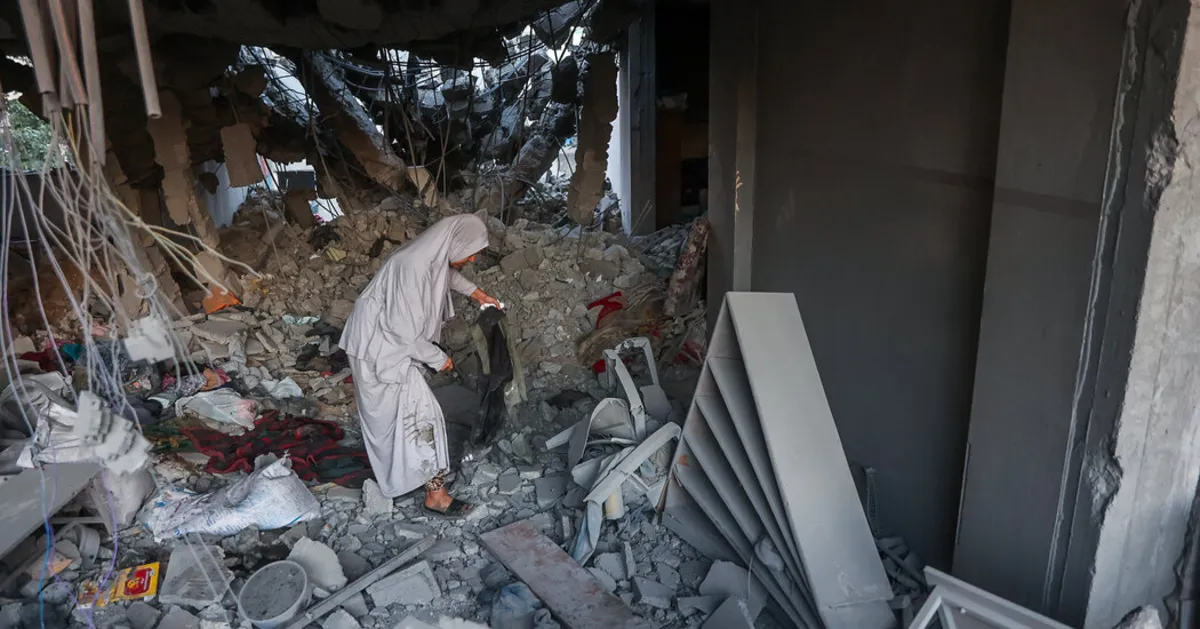
Shortly after the recent escalation, Hamas issued a statement accusing the Israeli government of “resuming their aggression” in the Gaza Strip. Residents in Gaza reported a wave of intense airstrikes across the territory, raising fears of a return to open conflict. White House Press Secretary Karoline Leavitt confirmed that Israel consulted with the White House prior to launching these strikes, emphasizing President Trump's declaration that Hamas and other terror groups targeting both Israel and the United States would face consequences. “All hell will break loose,” Ms. Leavitt warned during her appearance on Fox News.
The situation remains uncertain regarding whether this attack has effectively ended the cease-fire agreement established in mid-January between Israel and Hamas. In their statement, Hamas accused Israel of attempting to “overturn the cease-fire agreement,” which they claim endangers the fate of remaining prisoners in Gaza. These hostages were taken during the Hamas-led attack on Israel on October 7, 2023.
The Israeli Prime Minister's office, led by Benjamin Netanyahu, released a statement indicating that both he and Defense Minister Israel Katz had directed the military to act due to Hamas's “repeated refusal” to release hostages. The statement further noted that Hamas had dismissed all proposals from Steve Witkoff, the U.S. envoy to the Middle East, and other mediators. “Israel will, from now on, act against Hamas with increasing military strength,” the statement asserted.
Gaza’s Civil Defense, the primary emergency service in the Palestinian territory, reported significant operational challenges due to “multiple targets being struck simultaneously.” Mediators including the United States, Qatar, and Egypt are still attempting to negotiate the next steps in the cease-fire agreement, which aims for a permanent resolution to the ongoing conflict. However, progress has been minimal, given the deep-seated disagreements between the two factions.
In related political developments, Prime Minister Netanyahu's intention to hold a cabinet vote regarding the future of Ronen Bar, the head of the Shin Bet security agency, came to light less than a month after a similar move against Gali Baharav-Miara, the Israeli attorney general. This decision coincides with Netanyahu's right-wing coalition's renewed push to grant politicians greater control over the selection of Supreme Court justices.
These actions reflect Netanyahu's ongoing attempts to diminish the influence of institutions that serve as checks on his government's power, a strategy that has previously led to widespread protests and societal divisions. Following the Hamas-led attack in October, a temporary sense of national unity emerged, but it appears that easing tensions is now at risk.
Amichai Cohen, a law professor at the Israel Democracy Institute, remarked that the potential removal of Bar should not be viewed in isolation but rather as part of a broader trend of undermining independent agencies and augmenting executive power. “The judicial overhaul is back,” Cohen stated, indicating that the political landscape is shifting once again.
Calls for public demonstrations have already surfaced, with opposition leaders and grassroots activists urging Israelis to gather outside government headquarters in Jerusalem ahead of the cabinet vote on Bar’s future. A coalition of 300 prominent business leaders also released a statement opposing the dismissal.
Attorney General Baharav-Miara emphasized that Netanyahu could not initiate the firing process of Bar until it was determined whether it was lawful. She raised concerns about potential conflicts of interest for Netanyahu, suggesting a possible constitutional crisis if he disregarded her warning.
In response, Netanyahu indicated that the cabinet would consider her analysis prior to their vote but accused her intervention of “dangerous undermining” of government authority. This clash echoes earlier disputes in 2023 when mass protests erupted against attempts to overhaul the judiciary.
The backdrop of the attempted dismissal of Bar involves ongoing tensions between Netanyahu’s right-wing coalition and opposition forces regarding the future of the Israeli state. Netanyahu's coalition primarily comprises ultrareligious factions and settler activists who seek to consolidate control over the West Bank while limiting Palestinian rights.
For years, these groups have expressed dissatisfaction with the independence of institutions like the judiciary and security services, which they believe hinder their agenda. They argue that curtailing these bodies enhances democracy by allowing lawmakers to implement the policies voters endorsed.
In contrast, opposition leaders contend that such actions threaten democratic principles by eroding essential checks on governmental power, paving the way for a less pluralistic and potentially authoritarian state. They argue that Netanyahu must also be held accountable for the October 7 attack, not solely Bar.
As the Israeli military continues to conduct strikes in Gaza—reportedly targeting individuals attempting to bury explosives—Hamas claims that many of the victims are civilians. While Israel and Hamas are officially observing a cease-fire, negotiations to formalize this truce have stalled, with Israel maintaining regular military actions against perceived militant targets.
This ongoing conflict and political turmoil in Israel signal a complex and volatile situation that continues to evolve, with significant implications for both domestic governance and regional stability.